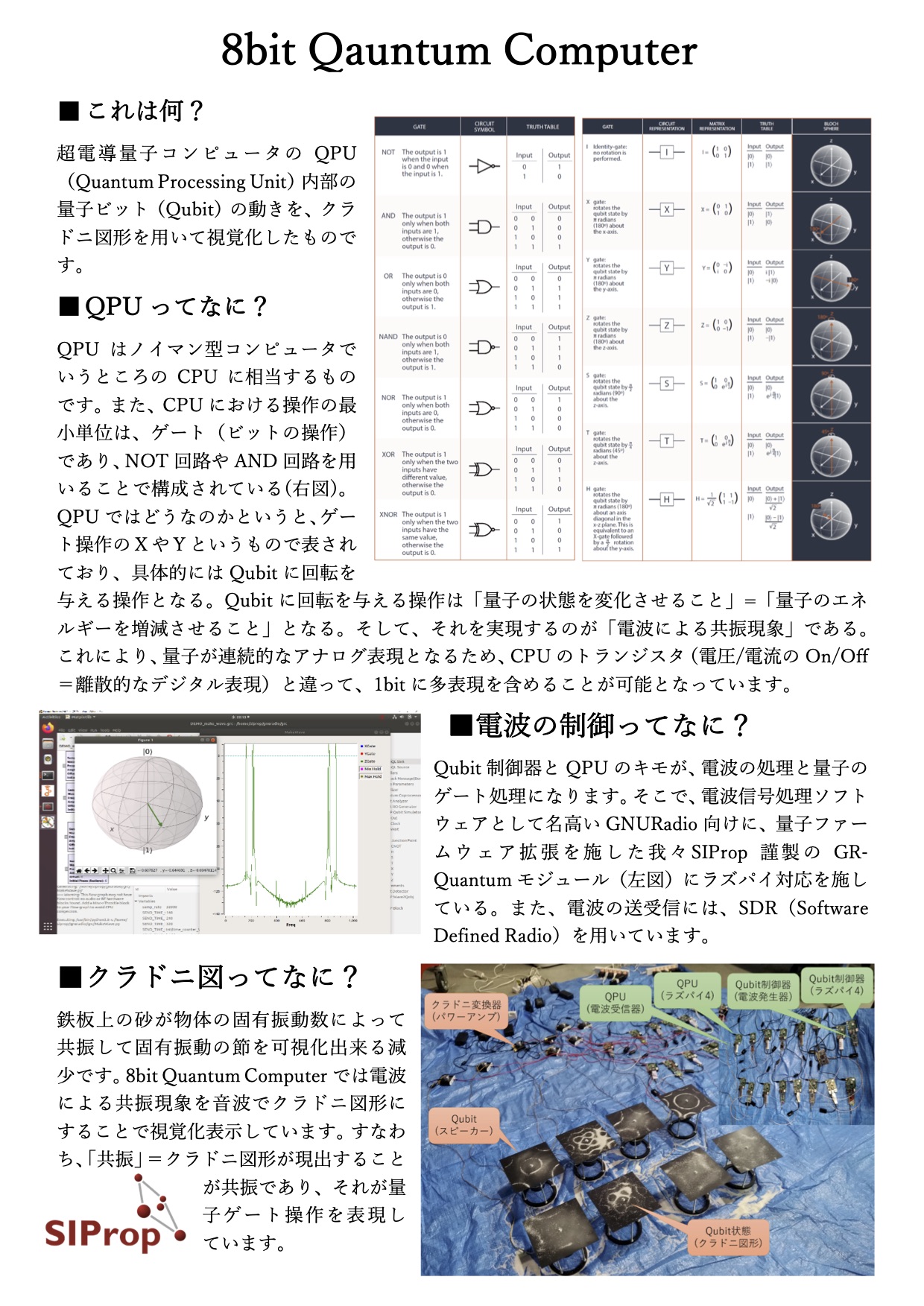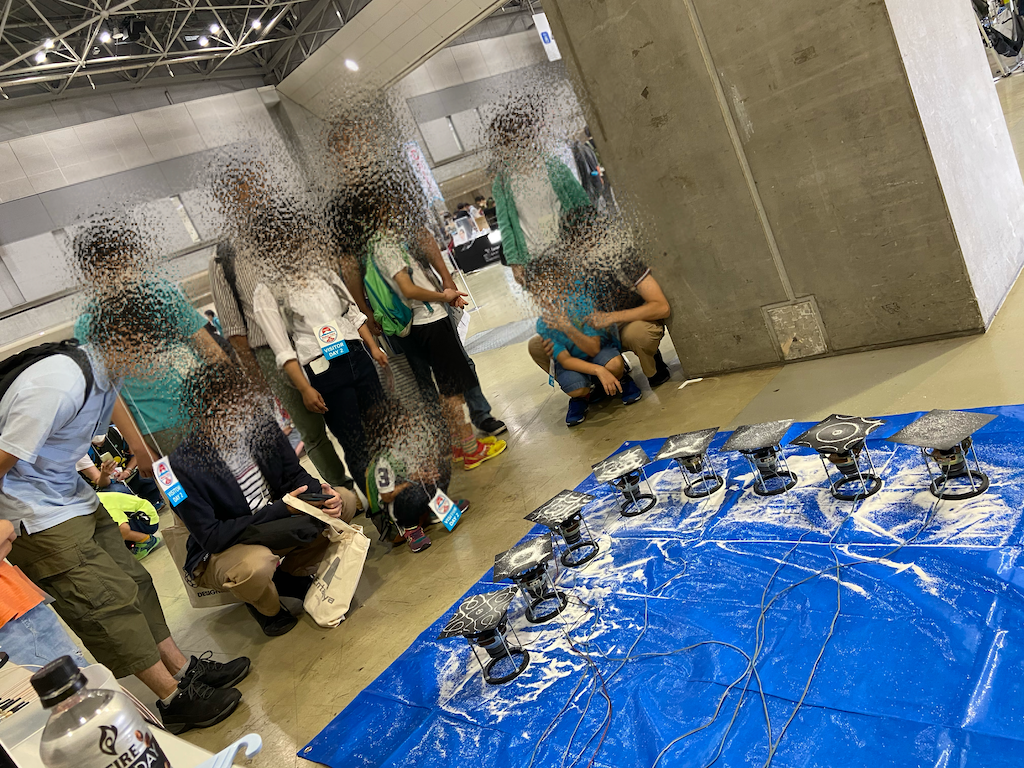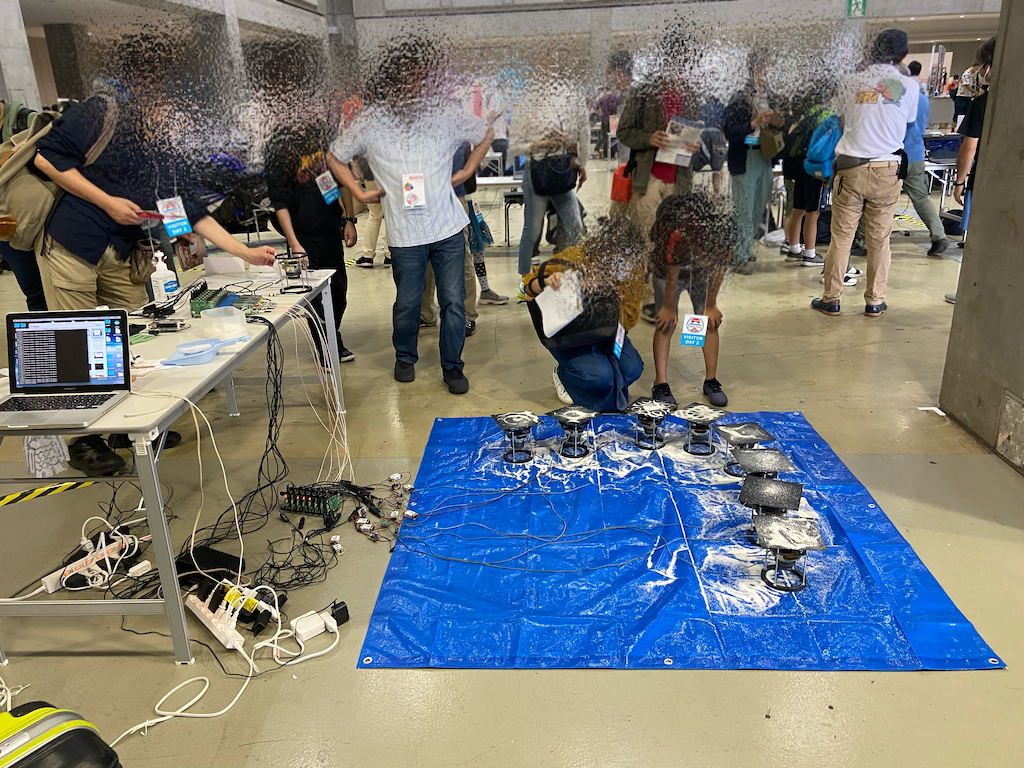8 bit
8 bit is an application work uses the operating principle of a superconducting quantum computer gate control microwaves.
Currently, there are a many applications works&interaction based classical computers architecture, but by using the quantum computers is few yet. In the future, many quantum computers applications will be created to emerge.
Then I focus on superconducting quantum computers in qbit gate control microwaves, propose the interaction between qbit and human and everyone could touch and try this application.
8 bit main feature is convert microwaves (radio waves) in the qbit gate control of the superconducting quantum computer to sound waves in real time and show them as a Chladni figure. In many cases, qbit gate control(for programming&circuits on quantum computer) is used as Bloch spheres, but qbit is shown as Chladni figure in this work, so that can see the gate control as a figure and understand the movement.
This work makes an attempt to have quantum indeterminacy with participants. The qbit state is determined by us, the viewer of the Chladni figure. In other words, the qbit state is determined by the interaction between the us and the qbit representation(Chladni figure), since the indeterminate qbit state is determined by the particles (sand) that make up the Chladni figure at the moment we are looking at it. And, I have also found that it is possible to represent quantum entanglement between qbits by sound waves transmitted in space.
The qbit coherence time is a very long compared to the actually quantum computer (actually is very short nsec time) in this work gate control microwave, so the collapse of the qbit state can be visualized by the indeterminate movement of the particles (sand) that make up the Chladni figure and their fall down.
8bitは、超伝導型量子コンピュータのゲート制御マイクロ波による動作原理を利用しています。
現在、多くのアプリケーションワークは古典的なコンピュータを利用していて、量子コンピュータを使用した物は非常に少ないです。将来的には多くの量子コンピュータのアプリケーションが出てくると予想されます。
そこで、超伝導型量子コンピュータの量子ゲート制御を行うマイクロ波に着目し、誰でも触ってみることができる量子ビットと人間とのインタラクションを提案する。
8bitの最大の特徴は、超伝導量子コンピュータのqbitゲート制御におけるマイクロ波(電波)をリアルタイムに音波に変換し、クラドニ図形として表示することである。多くの場合、qbitゲート制御(量子コンピューター上でのプログラミング・回路で利用される)はブロッホ球として扱われるが、本作品ではqbitをクラドニ図形として示すことで、ゲート制御におけるマイクロ波を図形として見ることができ、動きを理解することができる。
この作品では、人とqbitとの間に量子的な不確定性を持たせることを試みている。量子ビットの状態は、クラドニ図形を見る私たちによって決定される。つまり、私たちが見ている瞬間のクラドニ図形を構成する粒子(砂)によって不確定なqbit状態が決定されるため、私たちとqbit表現(クラドニ図形)の間の相互作用によってqbit状態が決定される。また空間上を伝わる音波によって、qbit間の量子もつれも表現する事も可能なことを確認している。
この作品のゲート制御マイクロ波では、qbitのコヒーレンス時間が実際の量子コンピュータに比べて非常に長い(実際には非常に短いnsec時間)ため、qbit状態の崩壊は、クラドニ図を構成する粒子(砂)の不定な動きとその落下によって視覚化している。




Awards: メディア芸術祭 エンターテイメント部門 審査委員会推薦作品
Event: Maker Faire Tokyo 2020, Ogaki Mini Maker Faire 2020(online)
Support: IPA 未踏ターゲット ゲート式量子コンピュータ向けソフトウェア開発
Documents: 量子コンパイル基盤の最適化処理・分岐並列制御の開発と量子計算を体感するプレゼンテーション (2020) 成果概要 詳細
RISC-V量子拡張の参照実装とマイクロ波制御量子ファームウェアの開発(2019) 成果概要 詳細
Principle Representation of The 8 Qubits Quantum Computer by RaspberryPi
Introductory Article : 「Maker Faire Tokyo 2020」レポート #5 , パケットや量子ビットはどう動く?Maker Faire Tokyoで可視化装置に注目集まる